Is Putin's power eroding? What's next for Russia's president after the Wagner rebellion
Is the feud between Vladimir Putin and Wagner chief Yevgeny Prigozhin over? And how will this affect the war in Ukraine?
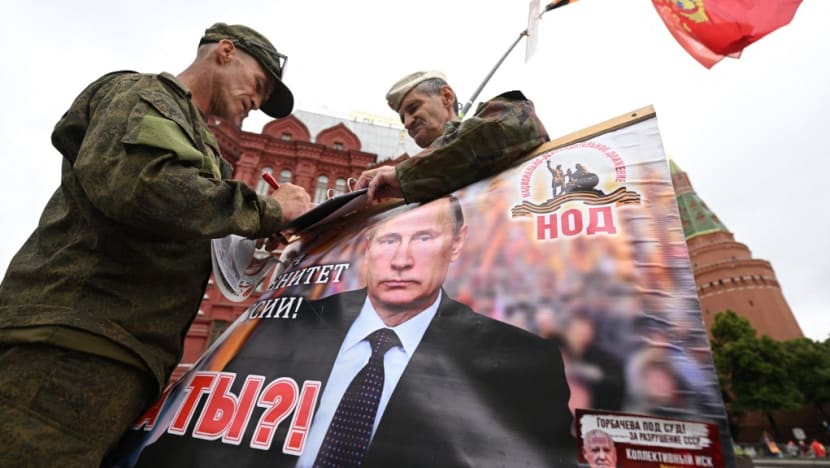
Activists hold a portrait of Russian President Vladimir Putin near Red Square in Moscow on Jun 24, 2023. (Photo: AFP/Natalia Kolesnikova)
The Wagner mercenary group's mutiny marked the biggest challenge yet to Russian President Vladimir Putin's long rule and the country's most serious security crisis since he came to power in 1999.
The aborted weekend revolt led by Wagner chief Yevgeny Prigozhin - who declared a sudden pull-back after marching towards Moscow - damaged Putin's image, boosted morale among Ukrainian troops and generated confusion.
But has it weakened Putin’s grip on power? And how might it affect the course of the war in Ukraine?
Here is what analysts have to say.
What does the revolt say about Putin's position?
In a fiery speech on Saturday, Putin vowed to punish the mutiny's perpetrators, accusing them of treason and for pushing Russia to the brink of civil war.
Just hours later, however, he had accepted a deal brokered by Minsk granting an amnesty for the Wagner chief and his men, and exile to Belarus for Prigozhin himself.
This response could have harmed Putin's standing, said William Alberque, the director of strategy, technology and arms control at the International Institute for Strategic Studies (IISS).
"This episode weakens the credibility of Putin, who appeared to be in panic on television on Saturday," he said.
"Everyone in Moscow is wondering: 'If it was a five-minute insurrection, why did the president talk about civil war?'"
Nigel Gould-Davies, senior fellow for Russia and Eurasia at IISS and a former British ambassador to Belarus, said that the incident "has sowed really profound anxiety across Russia's elites".
"It's one more example, after the launching of the invasion against Ukraine itself and the disastrous conduct of the war, one more example of Putin just being out of time and having consistently poor judgment and making mistakes, and the history of other times and places shows that an apparently very, very strong personalistic leader of the Putin type can, with great suddenness, lose authority and power if a critical mass of elites ceased to have confidence in his ability to keep the ship of state going and to protect their interests," he said.
"So the immediate crisis may be averted, but the longer-term consequences will ripple out and are changing Russia's political landscape, I would say."
"The most important thing is that the failures of Russia's war in Ukraine are reverberating increasingly within Russia itself and beginning to create instability and uncertainty and division at home," Gould-Davies added.
Speaking to CNA on Sunday, senior adviser on Russia and Europe at the United States Institute of Peace Donald N Jensen said that the future looked bleak for Putin.
"We are not yet seeing the whole drama play out. This is just some deal that we don't even hear the details about. I think in the coming weeks and months, it's going to play out with more specificity," said Jensen, who also served as a diplomat at the US embassy in Moscow.
"The big loser is Putin. I think we now have to talk about the end, perhaps, of his political career in the coming weeks and months. This has not been a good episode for the Russian president."
Pointing to the scenes on the streets of Rostov-on-Don on Saturday, Jensen also spoke about a lack of unity in Russia.
"A lot of people were taking selfie pictures, a lot of people were friendly towards the Prigozhin-Wagner troops – this is not a good sign," said Jensen.
"Putin - at a time when the country is under great stress - needs a unified home front. And clearly, the home front in Russia is not unified anymore."
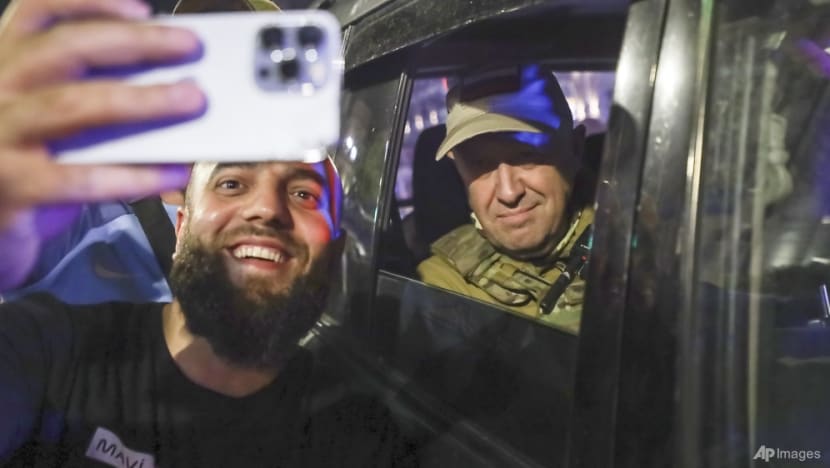

What is Putin's next step?
General Philip Breedlove, a former commander of the United States European Command, said that Putin is "going to try to reconsolidate".
"He's going to try to return to his capital and show that he was in charge the whole time and there's nothing to worry about," he said.
"He will start working with the other kleptocrats or oligarchs, whatever you want to call them that are around him and try to reconstitute his power base that is fraying around him.
"And he will try to paint this as a victory that he was able to bloodlessly turn this off and get everything back in order."
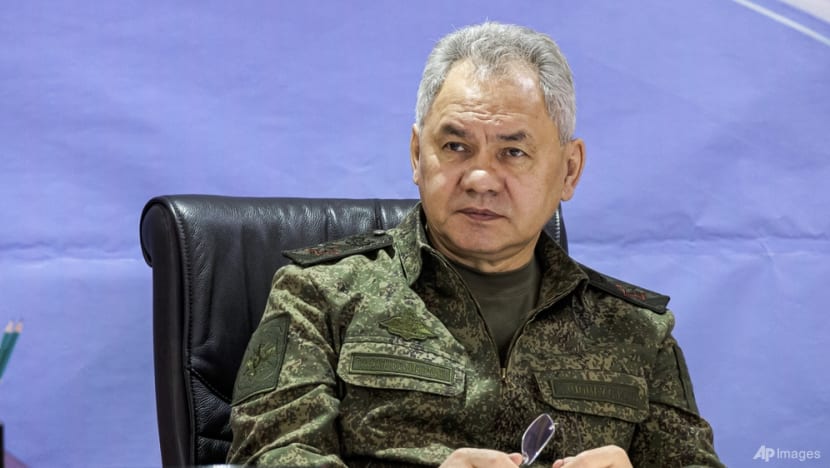
There are, however, question marks over how Putin will deal with the military leadership, including long-serving defence minister Sergei Shoigu who was one of the main targets of Prigozhin's anger.
Prigozhin has for months accused Shoigu and the chief of the general staff, Valery Gerasimov, of incompetence and of withholding ammunition from his fighters as they battled to take Bakhmut in Ukraine.
Russian-language Telegram channels have fizzed with speculation over who could succeed Shoigu, with the governor of the Tula region Alexei Dyumin, who has held top army and presidential security posts, seen as a favourite.
"Shoigu's group is on the verge of collapse, and Sergei Kuzhugetovich himself is in disgrace and, most likely, will resign," said the widely followed Telegram channel Preemnik.
Rob Lee of the US-based Foreign Policy Research Institute said that the insurrection made Shoigu and armed forces chief of staff Valery Gerasimov look weak.
"But it also demonstrated how important it is for Putin to have loyal figures in charge of his military and security services, particularly after an armed Russian group showed that is a potential threat to him," he tweeted.
Is the feud between Prigozhin and Russia's leadership over?
American diplomat Kurt Volker, a former ambassador to the North Atlantic Treaty Organization (NATO), said that the saga is not over yet for a "humiliated" Putin.
"Putin, I don't think, had a choice. He did not have confidence that his own people would stick with him. So he had to offer Prigozhin a way forward, a way out, if you will, to Belarus," he said.
"And now I don't think we've seen the last of this. I don't see how Putin can stay in power and has been shown to have caved to Prigozhin in this way.
"And therefore, I think he will go after him. And I think Prigozhin is counting on that. And that is something that I think he needs in order to, again, go after a bigger role in taking on the military apparatus of the country, but being justified in doing it."
IISS' Alberque said that allowing Prigozhin to escape without repercussions could set a dangerous precedent.
"If Prigozhin stays alive, all the Russian security players will feel they have impunity," he said.
General Breedlove, meanwhile, said that Prigozhin should "invest in some really good security guards like others that have opposed Mr Putin".
"He'll either take a nosedive off the third-floor balcony or he'll get a polonium headache and be gone," he said.
"But I think that Mr Putin is going to work hard to reconsolidate the vision that he's in control, all is calm and let's get back to killing Ukrainians."
Prigozhin's whereabouts remain unknown. He was last seen late Saturday in an SUV leaving the southern city of Rostov-on-Don, where his fighters had seized a military headquarters.
Prigozhin may not be Putin's only problem, however, said Jensen.
"Even if Prigozhin departs the scene, goes to Belarus or Africa or wherever, this is now opening a crack for other potential challengers to Putin and, believe me, they are there, we just don't know them very well," he said.
What will happen to Wagner?
Military blogger Michael Nacke suggested that Prigozhin planned to set up base with some of his Wagner forces in Belarus and continue his operations in Africa.
That is assuming the personal guarantees of Putin and Belarus leader Alexander Lukashenko, who mediated the conflict, are kept to.
"Prigozhin has become an extremely vulnerable target - he can be imprisoned, he can be killed and nothing will happen," Nacke said.
He added that many members of the Wagner group were "disappointed" by the climbdown.
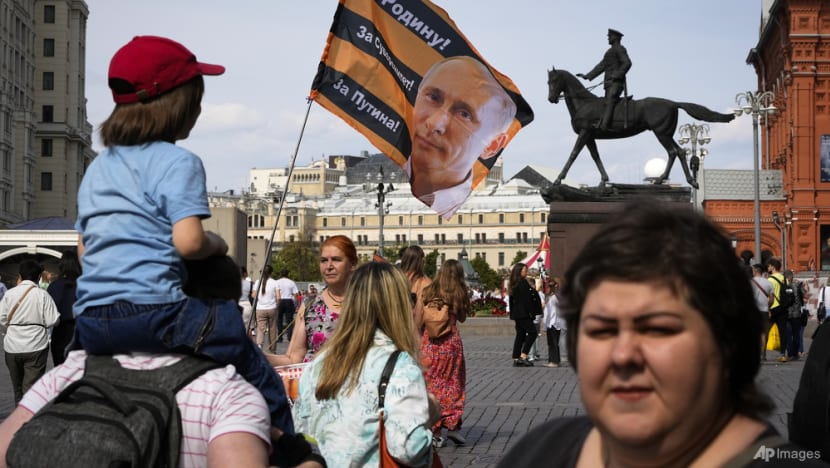
Wagner might also be disbanded or absorbed, said Michael Kofman of the Center for Naval Analyses, a US-based think-tank.
Before the mutiny, Putin had said members of the increasingly-powerful mercenary outfit must sign contracts with the defence ministry - an offer now open to Wagner members who did not take part in the rebellion.
"The Russian state had been trying to set up competing organisations and this process is likely to accelerate now," said Kofman.
How will the revolt affect the war in Ukraine?
Kyiv on Saturday said that the unrest offered a "window of opportunity" for its long-awaited counteroffensive.
But Moscow insisted that the mutiny would not affect its operations in Ukraine, and some military analysts appear to agree.
"After Bakhmut, the military was far less dependent on Wagner," said Kofman.
"Folks often conflated Bakhmut for the entire Russian winter offensive, and Wagner's role as though it was omnipresent on the front. It was quite narrow, and Wagner was not used for defence in the south."
Russian strikes continued on Saturday, killing five people in Kyiv according to the city's mayor.
On Sunday, Russia said that it had repelled several Ukrainian assaults in the east and south of the country, where Kyiv had announced gains.
But experts believe that the mutiny will be a blow to the morale of Russian troops in Ukraine, who have endured heavy losses in 16 months for marginal territorial gains.
"This must affect Russian morale," said Pierre Razoux, academic director of the France-based Mediterranean Foundation of Strategic Studies.
"On the Ukrainian side, there is perhaps a momentum to be used to break through the frontline, or at any rate to gain positions."
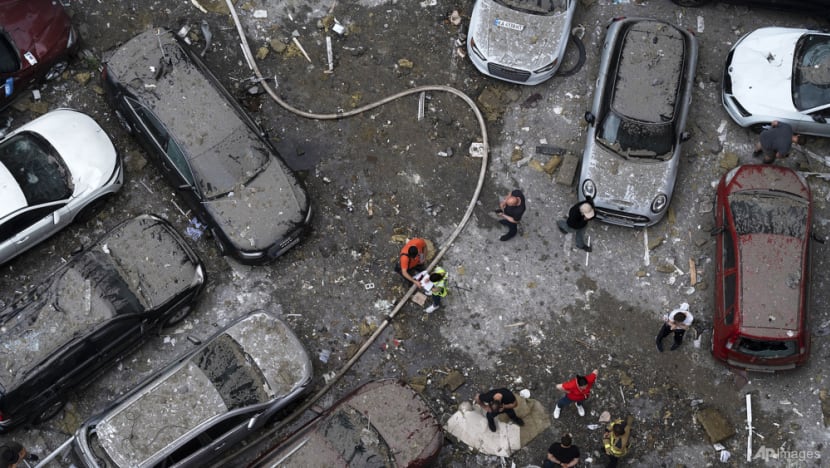
Jensen also spoke of the damage done to the morale of Russian soldiers.
"What Kyiv has done even in the past few days is to push forward the front in the Donetsk area, for example, by a noticeable number of kilometres. This weakens the morale of the Russian soldier. This weakens the morale of the Russian military," he said.
"They have been on the back foot, they have been trying to resist an impressive Ukrainian offensive, and all of a sudden you've got this thing behind their back – at home – that is beyond the control of the average soldier … so this is not a good sign for the Russian army."
A lack of support from Wagner may also contribute to the loss of Russian positions, Jensen said, pointing to the struggle over the town of Bakhmut where the group fought.
"The Wagner troops were some of the best troops in the Russian military," he said.
"Now Russia has put other troops in (Bakhmut) that have not been as good. And that has seen the Ukrainians make advances around that city just in the past couple of weeks."
Razoux warned, however, that Ukraine would "also have to secure the Belarus border because they are not safe from a treacherous blow".
"If 15,000 of Wagner's men pour in from Belarus, they can do some damage. Maybe that's what Prigozhin has negotiated with Putin," he said.














